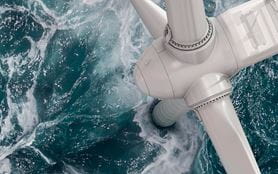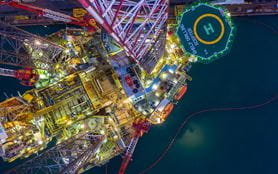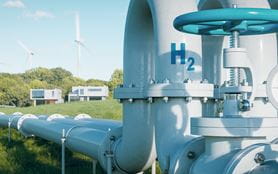Decarbonisation disputes: the evolving frontier of climate-related risk
Related people
Headlines in this article
Related news and insights
Publications: 04 April 2024
Deconstructing Crypto Episode 10: SBF, AI-Washing and Major Case Developments
Publications: 21 March 2024
Publications: 21 March 2024
Publications: 21 March 2024
The Net Zero transition will not be smooth. The scale of the investment required, and the appetite and ability of countries to implement new policy – both now and in the years to come – will cause unprecedented disruption and dislocation. The greatest investment opportunity and capital reallocation in history will produce winners and losers as governments make short-term decisions for expediency's sake, while the shift needed over the next quarter of a century in 198 countries presents arguably the greatest new source of litigation for business. Here we explore the myriad ways the Net Zero transition will generate claims – and take a deep-dive into the main areas of risk through a series of Q&As.
In May 2021, during the depths of the COVID-19 pandemic, a court in the Netherlands handed down one of the most headline-grabbing decisions to date in the evolving frontier of climate-related litigation.
The case – brought by Milieudefensie (Friends of the Earth Netherlands) – ended with one of the world’s biggest oil majors being told to slash its carbon emissions by 45% relative to their 2019 levels within a decade.
The decision is important for two reasons – firstly because it applies not only to the company’s own emissions but also those created by the use of its products. And secondly because it is the first time a court has ordered a company to reduce its carbon output in line with the trajectory that the Paris climate agreement has set for countries.
While the ruling raised eyebrows, the fact it came from the Netherlands did not. Six years earlier the Hague District Court was the venue for another high-profile climate dispute, this time launched by the environmental group Urgenda and 900 Dutch citizens against the Dutch state.
Then, the court (and later the Court of Appeal and Supreme Court) ordered the government to take further action to reduce the Netherlands’ greenhouse gas emissions, ruling that not doing so would violate the human rights of Dutch citizens.
Dutch courts become pioneers for climate disputes
The Dutch courts have been pioneers in their willingness to find that governments owe a duty to mitigate their contributions to climate change, and they could do the same for businesses (depending on the outcome of an appeal).
Other courts have followed suit – including in France and Belgium – while there are also three cases pending before the European Court of Human Rights. These are the first such cases to be heard by the ECHR and could provide fresh impetus for a new wave of climate-related disputes.
The claims argue the extreme weather that flows from climate change poses a threat to life and to physical and mental health, and that members of the Council of Europe have a duty to protect their citizens under Articles 2 and 8 of the European Convention on Human Rights (which cover the right to life and the right to a private and family life).
Protecting citizens in this context could involve setting tougher emissions reduction targets, among other things.
Public hearings before the ECHR’s Grand Chamber (which is reserved for the most significant matters) have been held in the first two cases, with the third scheduled for later in 2023. Once complete, the Court is expected to issue a judgment which will be legally binding on all 46 Council members.
Litigation and its role in climate governance
In 2022, the UN’s Intergovernmental Panel on Climate Change (IPCC) acknowledged that litigation is having an increasing influence on “the outcome and ambition of climate governance”.
Research from the London School of Economics (LSE) reveals that the number of climate change-related lawsuits has doubled since 2015, with more than 2,000 cases filed around the world. A quarter were launched between 2020 and 2022, and while most involved governments, dozens are aimed at businesses.
Litigation is being used in a bid to hold business leaders accountable for perceived corporate failures to manage climate risks.
These cases seek to discourage high-carbon activities, target alleged failures to adapt to the Net Zero transition, claim compensation for climate damage, and highlight instances of “greenwashing”.
Litigation is also being used in a bid to hold business leaders accountable for perceived corporate failures to manage climate risks.
In monitoring these cases over decades, the LSE has been able to track claimants – often non-governmental organisations (NGOs) – using ever-more creative approaches in pursuit of their goals. In many instances their aim is not to win but to draw attention to climate issues and force a change in corporate behaviour.
In recent years the LSE’s research has revealed an uptick in cases based on human rights law as well as litigation linked to the advance of attribution science, which attempts to tie emissions to extreme weather events at local level.
From Peru to Germany: RWE vs Lliuya
In RWE vs Lliuya, the 125-year-old German utility is being sued by a climate-focused NGO over the alleged impact of its historic emissions on the livelihood of a Peruvian farmer, Saúl Luciano Lliuya. While the original suit was dismissed by the District Court of Essen, an appeal has seen the case progress to a hearing.
The aim of the suit is to make RWE pay a share of Mr Lliuya’s climate mitigation costs relative to its historic contribution to global emissions (as claimed by the Carbon Majors study). While the value of the claim is small (running to less than EUR20,000), it could set an important precedent.
Here there have been tort claims against businesses seeking compensation for the impact of floods, wildfires and more intense storms, as well as to cover the cost of mitigation measures designed to protect against them.
Work such as the Carbon Majors study – which takes total greenhouse gas emissions since the start of the industrial era and assigns them proportionally to businesses and countries – has led to damages claims against corporates over the alleged effects of climate change thousands of miles from their home jurisdictions.
Alongside this, a landmark 2022 report into the human rights implications of climate change from the Commission on Human Rights of the Philippines found carbon majors were aware of the effects of global warming yet engaged in “obstruction” to prevent meaningful climate action.
The report concluded that this breached their responsibilities to respect human rights, and while non-binding it may have some precedential value. It’s possible we may see claimants invoke the report in future litigation to support arguments that climate change adversely impacts human rights, and that companies therefore have certain duties in response.
While the tort claims mentioned above target a small number of defendants and are not indicative of a broader trend, they serve to establish a link between companies and climate change in the public consciousness.
The LSE’s researchers have also identified the emergence of “systemic lawyering”, whereby disputes are brought strategically to drive change across broad swathes of the economy.
Here, claimants will identify business “nodes” within different systems – for example food or transport – and pinpoint interventions they hope will destabilise the nodes and create a ripple effect across the broader economy.
Rather than simply going after the biggest emitters, claimants are instead focusing on financial institutions and manufacturers that sit at the centre of complex supply chains.
The threat from climate-related disclosures
Away from their direct impact on the environment, businesses also face growing litigation risk from their climate-related disclosures.
The risks here revolve around whether companies have adequately assessed the impact of global warming on their operations, the urgency of the actions they are taking to support the Net Zero transition, and whether they have provided relevant climate-related information to their shareholders, regulators and other stakeholders.
Perhaps the best-known “greenwashing” case to date saw the New York Attorney General sue a U.S. oil major, alleging it had misled investors and the public about the financial risks it faced from climate change, as well as the regulatory costs of reducing its emissions.
The suit was dismissed but the judge censured the company over its “deficient” disclosure practices, while its chairman, CEO, and other directors have also been subject to securities and financial regulation lawsuits.
The greenwashing of financial products is also in regulators’ sights, with authorities paying close attention to whether the sustainability claims made in marketing materials stack up against reality.
Prospectus rules bring greenwashing liability
Current greenwashing litigation focuses on disclosures made by companies about both their activities and their products.
The most significant legal risk comes from securities lawsuits (where the U.S. is a nexus of activity), but cases are also being brought under consumer protection and advertising laws, with many EU cases linked to the implementation of the Unfair Commercial Practices Directive.
Many of these suits revolve around whether consumers fully understand concepts such as “climate neutrality” or “Net Zero”, which often involve a combination of reducing greenhouse gas emissions and offsetting high-carbon activities, rather than ending them.
We are also seeing claimants pushing companies to provide a holistic picture of climate impacts in their disclosures rather than simply focusing on the positives.
France, Germany and the Netherlands (again) are emerging as the most active European jurisdictions for greenwashing lawsuits, with certain energy majors being targeted over whether their pledges to be carbon neutral by 2050 are misleading given their fossil fuel investments today.
Moreover, to prevent greenwashing, the European Commission has proposed a “Green Claims Directive” to address greenwashing risk by tackling false environmental claims made towards consumers.
The proposal targets statements made explicitly and voluntarily by businesses to customers where they relate to the environmental aspects of a product or the trader itself. If and when the directive is adopted, it too may provide another trigger for litigation.
Financial institutions in firing line over funding decisions
For financial institutions, the main source of climate-related litigation risk stems from whether their assessments of the impact of climate change on their loan portfolios are realistic, and in relation to the negative environmental impact of the activities they fund.
We have seen banks targeted in a bid to force them to reduce the emissions generated by their lending activities, with one of the latest cases brought under France’s Duty of Vigilance Law (which requires large companies to identify and prevent risks to human rights and the environment that could occur as a result of their activities).
The claimants – a group of French NGOs – are demanding that a major bank “immediately stops supporting (both directly and indirectly) new fossil [fuel] projects and [complies] with the Paris goal of limiting global warming to 1.5C”.
And with the EU's proposed Corporate Sustainability Due Diligence Directive (CSDDD) set to be implemented into member states' law in 2024, we could see more such disputes – particularly if Brussels opts for full harmonisation (i.e. requires all governments to follow an EU-wide standard, including those that already have their own due diligence laws in place).
Adding further complexity to the picture is the risk of banks and investors being sued for withdrawing financing for high-carbon projects or businesses, either because changes in regulation impact the viability of the underlying investment or because financiers' own sustainability objectives cause them to turn away from carbon-intensive activities.
In 2019, the U.S.-headquartered Westmoreland Coal Company took a Canadian state-owned export credit agency (ECA) to an arbitral tribunal after it demanded early repayment of Westmoreland’s debt.
Westmoreland claimed the ECA’s decision was motivated by political pressure to divest from coal, and that this violated the terms of the loan which did not include any environmental or social criteria.
The case was settled in 2020, with the lender agreeing to extend the loan maturity as well as reduce the coupon.
Red states’ ESG backlash raises antitrust risk
In the past year we have also seen a number of Republican-led states in the U.S. hit back against investors over their ESG policies, defying the federal government which has unleashed a wave of policymaking designed to accelerate decarbonisation and promote ESG-positive activities.
In 2021, Arizona’s Attorney General launched an antitrust investigation into whether lenders’ ESG activities affect their relationship with energy companies to such an extent that they constitute “unlawful market manipulation”.
In 2022, a group of state attorneys general opened an investigation into whether the policies of six members of the Net-Zero Bank Alliance – which deny some companies access to banking services based on their environmental records – amount to anticompetitive co-ordination and violate consumer protection laws.
States have also implemented measures requiring government investors such as state-sponsored pension funds to divest from entities they deem to be promoting ESG goals. For example, both Kentucky and Texas have passed laws mandating the sale of stakes in companies that “boycott” high-carbon energy producers.
Additionally, Florida's chief financial officer has prohibited asset managers within the state's deferred compensation programme from investing in financial products that involve ESG standards.
Several states (including Florida and Kansas) have introduced bills that require government investors to base their investment decisions only on “pecuniary factors”, often defined to exclude ESG analysis.
Some funds have refused to comply (arguing that to do so would breach their fiduciary duties), raising the prospect of disputes further down the line.
Any litigation that arises could test whether ESG decisions have a positive or negative effect on investment performance, with subsequent court rulings having potentially far-reaching consequences.
The impact of policy change
These types of cases draw plenty of media attention. But away from the headlines can be found a multitude of other claims driven by the energy transition.
Significant shifts in policy – something we also explore in our report, Financing the gap – are a major driver of disputes, with claims launched against governments seeking compensation for energy investments “stranded” by Net Zero regulation or damaged by the removal of green incentives.
In the Netherlands, two German coal plant owners sued the Dutch state claiming that the country’s Coal Ban Law (which prohibits coal-fired power generation from 2030) is unlawful due to the lack of adequate compensation offered to asset owners, among other things.
While the claim was initially denied, the case is now pending appeal. Further complicating the situation, both businesses also filed arbitration claims under the Energy Charter Treaty, and although one has been withdrawn the other is still pending.
Decision to end nuclear programme sparks disputes
The Keystone XL pipeline (which links Canada’s tar sands to the Gulf of Mexico) has also been the source of several lawsuits after it was blocked, restarted and then blocked again during the shift from the Obama to the Trump and Biden administrations.
Likewise the EU’s Emissions Trading Scheme has sparked complaints from European businesses who claim it makes their products uncompetitive relative to those from countries that allow carbon to be emitted at will. Brussels’ attempt to redress the balance via its Carbon Border Adjustment Mechanism may itself be challenged by those who believe it violates the rules of the World Trade Organization.
Further litigation over decommissioning, contracts and environmental patents
Elsewhere we can expect a rising tide of lawsuits over the decommissioning of high-carbon infrastructure, as parties dispute the allocation of costs and liabilities for the closure of facilities and the clean-up of contaminated sites.
We will see more construction litigation as low-carbon production facilities and transmission equipment are installed, and a rise in commercial disputes around non-performance of contracts as the energy transition impacts the provision of goods and services.
As with other areas of fast-developing technology, energy transition patents will become another driver of litigation, with innovators potentially facing challenges protecting or enforcing their intellectual property rights or in accessing the IP of others.
We may even see countries look to apply compulsory licences to breakthrough climate technologies, with those decisions challenged through the courts.
This contentious environment – in which investors battle investees, companies sue governments, and NGOs litigate against corporates and financial institutions – will only intensify as the Net Zero transition accelerates. In the Q&As below, we address the critical issues involved in each subset of lawsuits – and explain the steps businesses can take to defend their interests









